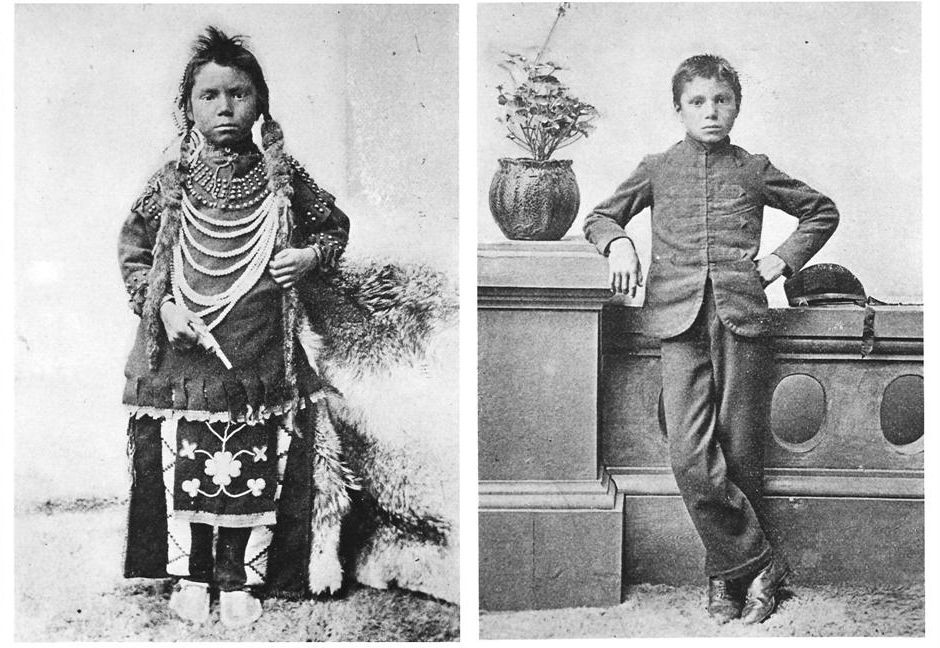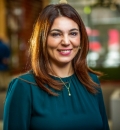With over 20 years of international experience working in the child welfare sector, Zeina Ismail-Allouche has contributed to international initiatives promoting family strengthening and participated in the drafting of UN Guidelines for the Alternative Care for Children. Zeina has co-written a book chapter on the challenges facing indigenous youth coming of age out of care in Canada. She has published many articles on the reform of the child welfare sector.
Blog post
I don’t wish my adoption even on my worst enemy
 The Orphanage | Image by Daniel Drennan ElAwar (used with permission)
The Orphanage | Image by Daniel Drennan ElAwar (used with permission)
On his personal blog, Daniel Drennan, who was adopted from Lebanon and brought to the United States in the 1960s, speaks about his journey searching for his birth mother. He describes the long years when he wished for a reunion, which only happened in 2016 when he found her resting in her tomb. Daniel says that he doesn’t wish adoption even on his worst enemy.
Manu, who was also adopted from Lebanon, speaks about the “need to fill a deep void and unfold the story around my birth” in a letter entitled “Mum, I am looking for you!” At the age of 47, Manu spent three years searching for her birth mother and it took a DNA test to unfold her story.
Vicky Boldo, a Métis who was adopted during the 1960s scoop, speaks of healing only after reconnecting with her roots.
In all these stories, the untold realities of the birth mothers indicated that subtle systemic violence forced them to give up their babies for intercountry adoption.
Not orphans at all
The Syrian refugee crisis, natural disasters and economic recession have increased the number of children falling into adoption. Most perceive this practice as a virtue that offers the child — especially the orphan — a new loving home, a new family and a new country.
Nevertheless, current international reports are highlighting that most adopted children are not orphans at all but mainly born to poor families. Single mothers are at a higher risk of letting go of their newborns because they are shamed, blamed and turned down when seeking support to provide care for their children.
In Canada, colonialism led to separating a child from their birth mother first into residential schools and later through adoption. This system aimed to disconnect the Indigenous child from their roots, languages and cultures. It was never a practice in the best interests of the child but rather a strategy to get rid of the problematic child, as stated by Duncan Campbell Scott.
Colonial practice
This practice found its way into many countries impacted by colonialism. The missionary charitable work supported by adoption agencies promoted adoption as the best possible solution to save the single mother and her child.
In my research work on adoption, I found that this practice started in Lebanon in the 1800s under the French mandate by the charitable missionary associations. However, the country witnessed a bigger wave of adoption overseas during the long years of the civil war that kicked off in April 1975.
 Thomas Moore before and after his entrance into the Regina Indian Residential School in Saskatchewan in 1874. | Photo: Library and Archives Canada (NL-022474)
Thomas Moore before and after his entrance into the Regina Indian Residential School in Saskatchewan in 1874. | Photo: Library and Archives Canada (NL-022474)
The best interests of the child
If this was all done for the best interests of the child, one needs to raise questions about this practice and its relevance to its stated objectives. Instead, what if we invest that money in preventing separation, strengthening families at risk (especially those headed by single mothers), supporting extended families and reinforcing local community networks? Why is it favourable to rip a child out of their natural context and roots?
In pre-colonial time, the child was sacred and, when separation from the birth mother was necessary, there was a whole community system that stood out to care for the child. No secrets, no falsification and no disconnection from roots. This comes in the line with the provisions of the International Guidelines on Children without Parental Care approved by the United Nations General Assembly in 2009.
Oral history research-creation
Conversations on adoption practices are emotionally and ideologically charged. Some stories position adoption as tales of rescue, whereas others consider adoption as an interface to child trafficking. It is a controversial subject that necessitates time to pause, reflect and listen to the voices of those who lived these experiences and are in search of their lost identities.
The stories of individuals who experienced intercountry adoption are challenging adoption as a rescue practice by highlighting the possible long-term and irreversible psychological complications associated with separation from the birth mother. Unfortunately, many still undermine reports on adoption disruptions; adoption is still perceived as the best solution for children who need permanent homes, for women who experience an unexpected pregnancy and for couples who desire to become parents.
Therefore, I am working on an oral history performance PhD project to engage with individuals who have experienced intercountry or transracial adoptions. My project aims to:
- share their life stories on identity, connection to origins and belonging;
- explore similarities, intersections and diversions of experiences; and
- inform the international discourse on Indigenous best practices that call for rooting care.
About the author
